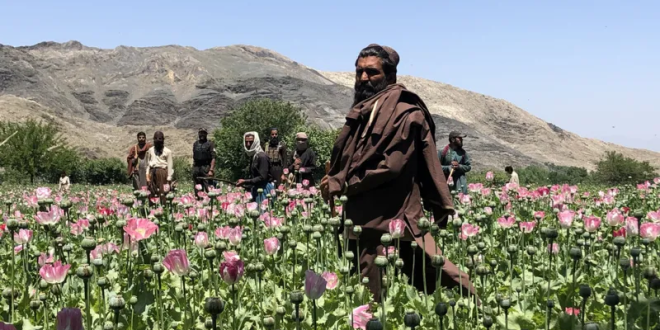AT
Kabul: According to a new report by the World Bank, the ban on opium cultivation in Afghanistan has resulted in a substantial loss of $1.3 billion for farmers, equivalent to approximately 8 percent of the nation’s GDP. The report highlights a 26 percent contraction in Afghanistan’s real GDP over the past two fiscal years, with an uncertain economic outlook persisting until at least 2025, posing the threat of stagnation. Structural deficiencies in the private sector and declining international support for essential services are anticipated to hinder economic progress, as noted in the report. Furthermore, the report emphasizes the dire situation faced by half of Afghanistan’s population living in poverty, with 15 million people experiencing food insecurity. Melinda Good, World Bank Country Director for Afghanistan, emphasizes the need for a shift towards a more resilient, private sector-led economy, focusing on Afghanistan’s strengths in agriculture and extractive industries. Additionally, the report highlights the challenge posed by Afghanistan’s increasing trade deficit, with imports reaching $7.8 billion in 2023, representing a 23% increase.
 Afghanistan Times
Afghanistan Times




